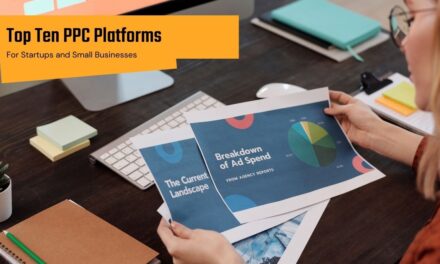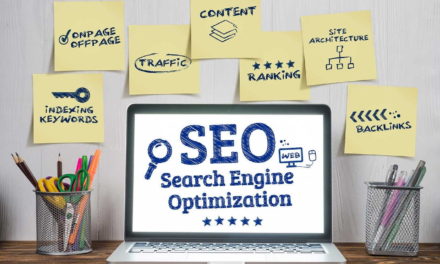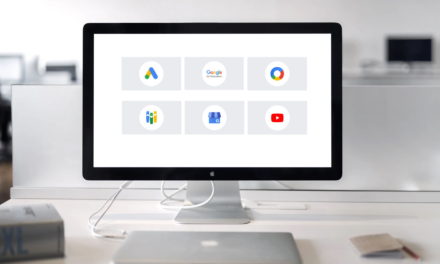I still remember the time when Google revolutionized digital marketing by introducing Pay-Per-Click (PPC) advertisements on its search platform. At the time, it was known as Google AdWords and it was nothing like marketers had experienced before.
The premise of pay only when someone clicks on your advertisement, that too by those who were specifically searching for your kind of product or service was just too good to be true.
What followed was a frenzy of advertisers frantically bidding on keywords. Digital marketing was not the same any longer as you could now get in front of warm leads and pay only when the lead had actually clicked on the advertisement.
While the good days of Google PPC AdWords campaigns remained for a long time, it did start to fade gradually. Firstly each and every keyword seemed to be priced out for most small to medium sized companies. Bidding wars and competition took a toll on most marketing budgets and then of course, you had the entry of the social media giants in the same space.
Facebook especially created a new promise for the digital marketing world. Now you could specifically target your advertisement to someone living in a specific area of a city who was also interested in the same topics as what you were selling. With Facebook’s backend data on each of its users, the targeting options for advertisers became much more vast than before.
Then came LinkedIn with the world’s largest database of professionals and business owners and suddenly Business to Business advertisements shifted to the LinkedIn platform.
So that brings us to the main question for today. Is it still worth investing in Google Ads given that you have so many other options such as social media, content marketing, influencer campaigns etc? Is Google Ads still relevant in the current digital marketing scenario?
The answer to that is a big and emphatic ‘YES.’
It is definitely still relevant and must be a part of any company’s overall digital marketing strategy. Some of the arguments why this should be so are as follows:
1) Warm leads
There is no doubt the targeting options available on social media sites like Facebook are pretty awesome. If you are selling Acoustic Guitars in San Diego, you could find users interested in Acoustic Guitars near your business location and push ads to them. However, just because someone likes or is interested in the topic of Acoustic Guitars does not necessarily mean they are ready to buy one at the moment.
However, if someone is searching for ‘Acoustic Guitar shops in San Diego’ or with a specific model within Acoustic Guitars, then they are likely to be someone that is looking to buy that at the moment.
This is where Google search ads still shine quite brightly. The leads you get from Google search are warm leads. They are people who have a need for what you are selling. This has always been and will remain one of the key unique selling points of Google Ads.
2) User Intent and enhanced targeting options
Remember Google has dropped the letters ‘word’ from its PPC advertising service. Now instead of Google AdWords, It is known as Google Ads.
This is because Google themselves have been trying to move away from the keyword being used by a user to their intent when they search for anything.
Google using their tracking and analytics data, tries to perceive the intent of a search user and shows ads to them accordingly. This is a huge development for advertisers as you are now more likely to show your ad to an even warmer lead than before.
Also remember it is not simply a name change that Google has gone through. The kind of targeting options they have introduced in the past few years is outstanding. They have genuinely responded to the competition from social media companies and have provided similar targeting options while maintaining their core strengths.
3) Google AdSense
When you advertise on Google, you are not just advertising on their search platform. You are also advertising on their vast display network.
Most website owners, bloggers, forum owners etc. use the Google AdSense program to monetize their website. With this, they display ads on their own site at strategic locations and for any click, they get a percentage of what the advertiser pays Google.
Thanks to the Google AdSense program, advertisers have access to millions of websites across the internet in all niches. You can choose to advertise or display your banners on sites related to your business. So keeping up with the Acoustic Guitar example, you could advertise on all websites that provide tutorials, tips and reviews for Acoustic Guitar.
4) Google Network including YouTube, Gmail, Android Ads etc.
Continuing from the above point regarding Google AdSense, Google’s strength lies in its incredible network and reach. Do you know anyone who does not use a Google service at the moment? From YouTube to Gmail, Android mobiles, Google Maps and others, we continually use Google products and services.
With Google Ads, you can reach this vast network of pretty much the entire internet userbase. Something not possible with other platforms.
5) Remarketing
Once again, thanks to the incredible reach of Google products, Google AdSense and let’s face it, Google’s ability to track everything that we are doing online, advertisers can create effective remarketing campaigns on Google Ads.
Remarketing is simply targeting those users who have already been to your website or interacted with your product in any way digitally.
So if someone has visited your website or shown interest in your product, your ad could be displayed to this user no matter where they would go. Whether they visit a blog, another website, even a social media site, you could use remarketing campaigns to continually show your ad to this user till they return to your website.
Remarketing has been one of the key developments in digital marketing over the past few years and Google Ads is a leader in remarketing campaigns.
Note: To get the most out of Google Ads and create a fail-safe campaign, try researching keywords and other details your competitor is using for their own campaigns. Check here to get started.





